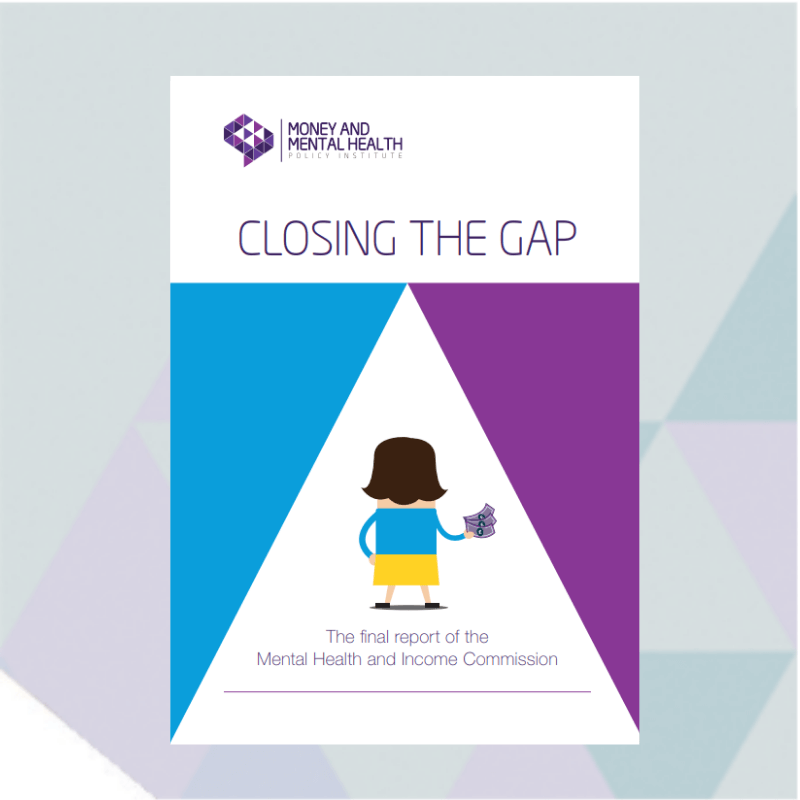Conor D’Arcy, Head of Research and Policy and Nikki Bond, Senior Research Officer.
Closing the gap
The final report from the Mental Health and Income Commission shows there is a significant ‘mental health income gap’, and calls for urgent and systemic action to stop this from growing. It outlines that:
- Typical income for people with common mental health conditions is £8,400 less than for the rest of the population.
- Since the pandemic began, three in ten people with mental health problems have experienced an income drop — causing many to cut back on essentials.
- A significant cause of this gap is the barriers to employment and job progression that many people with mental health problems face — ranging from inflexible working practices to discrimination.
- Another key contributory factor is the lack of adequate support through the social security system for those who need time off work due to mental illness, or who are unable to work full stop.
We are calling for both immediate measures and systemic reforms to address these income inequalities. Recommendations for government and employers include:
- The government should introduce a right to flexible working for all employees during the pandemic, to help people with mental health problems to continue work flexibly and increase income security.
- Statutory Sick Pay should be more generous and current eligibility criteria should be expanded to make it a basic employment right for all workers.
- Large companies should be required by law to report on the pay gap between employees with and without mental health problems, to expose inequalities and discrimination.
